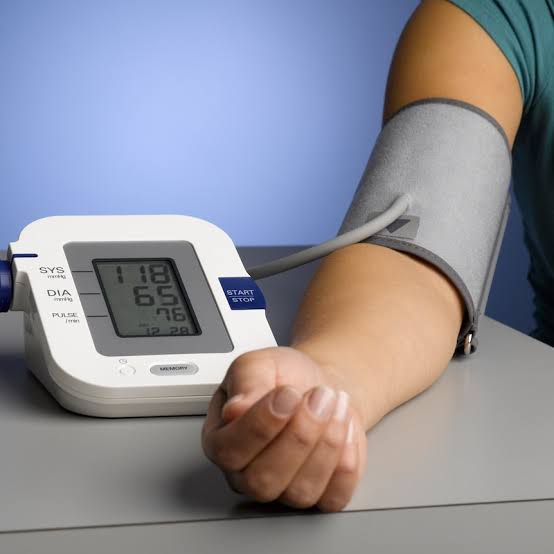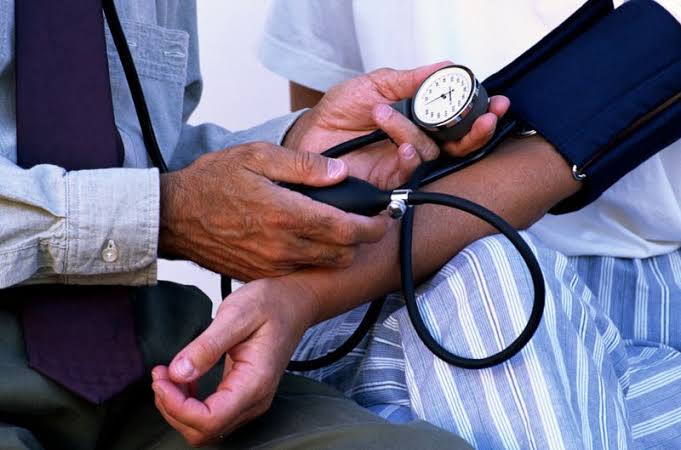For many years, high blood pressure (also called hypertension) was considered a “middle-age problem.” It was something we expected to see in our parents or grandparents, not in our peers or ourselves. But the reality in Nigeria, and across many African nations—is shifting. More young adults in their 20s and 30s are being diagnosed with high blood pressure, and often without warning.
This article explores why this is happening, what it means for the future of our health, and what young Nigerians can start doing about it today.
What Is High Blood Pressure?
High blood pressure is a medical condition where the force of blood against the artery walls is consistently too high. It’s often called a “silent killer” because it may not show obvious symptoms until it causes major health problems like stroke, heart failure, or kidney damage.
• Normal BP: 120/80 mmHg
• Elevated BP: 120–129/<80 mmHg
• Hypertension Stage 1: 130–139/80–89 mmHg
• Hypertension Stage 2: ≥140/90 mmHg

The Rise of Hypertension Among Young Nigerians
According to recent studies from Nigeria’s health sector, a growing number of adults between ages 25 and 40 are being diagnosed with hypertension. This is alarming, considering that this age group makes up a large portion of the country’s working population.
So, what’s causing this spike?
Main Causes of High Blood Pressure in Young Nigerians
1. Stress and Hustle Culture
Nigeria’s economic climate is not easy—most young people juggle side hustles, long commutes, toxic work environments, and financial pressure. Some young individuals these days even go as far as bragging about their not sleeping just to show their hustle spirit, thinking it’s a good thing to be proud of. Chronic stress raises cortisol levels, which in turn increases blood pressure over time.
2. Poor Diet Choices
Many Nigerians rely heavily on processed or salty foods like: Instant noodles, Packaged snacks, Excessive seasoning cubes, Sugary soft drinks. High salt and sugar intake contributes directly to high blood pressure.
3. Lack of Physical Activity
Between 9–5 jobs, traffic, and digital addiction, many young adults have become sedentary. A lack of daily movement weakens the heart and leads to weight gain—two major risk factors for hypertension.
4. Alcohol and Smoking
The rise in casual drinking, shisha, and cigarette smoking among the youth is another red flag. These habits can stiffen the arteries and raise blood pressure rapidly.
5. Family History
If hypertension runs in your family, you may be genetically predisposed—even if you live a relatively healthy lifestyle.
A Real Story: My Friend’s Wake-Up Call
A close friend of mine recently shared a shocking experience. At just 34 years old, she went to the hospital to run a general health check-up, thinking everything was fine. But when her blood pressure was taken, the nurse looked alarmed—it was extremely high.
The doctor’s advice was clear: “You need to start resting. You’re doing too much and worrying about everything.” She had been juggling work, family responsibilities, side hustles, and anxiety about the future—all without real rest or self-care. That hospital visit was her wake-up call.
Now, she’s learning to slow down, take breaks, prioritize her peace, and monitor her health more regularly.
Her story isn’t rare. It’s a growing reality for many Nigerians—especially women in their 30s.
Common Symptoms (If Any)
While many people don’t feel anything until it’s too late, some warning signs include:
- Frequent headaches
- Blurred vision
- Chest pain
- Shortness of breath
- Fatigue or dizziness
But again, many cases have no symptoms at all—so regular blood pressure checks are crucial.
How to Prevent or Manage High Blood Pressure Early
1. Eat Clean, Local, and Balanced
Cut down on salt and seasoning cubes. Eat more fruits, vegetables, and whole grains. Opt for fresh fish, lean meat, and plant-based proteins like beans.
2. Get Active
Walk at least 30 minutes a day. Try home workouts, jump rope, or dance fitness. Take the stairs whenever possible.
3. Sleep and Rest Well
Aim for 7–8 hours of sleep each night. Chronic sleep deprivation can lead to higher blood pressure levels.
4. Reduce Stress
Meditation, journaling, or simply reducing screen time can help manage your mental load.
5. Check Your Blood Pressure Regularly
Many pharmacies and hospitals in Nigeria are available around you where you can easily check your BP. Make it a habit—especially if you have a family history.
High blood pressure is no longer a disease for “old people.” It’s here, it’s rising, and it’s affecting young, ambitious, urban Nigerians more than ever before. The earlier you detect and manage it, the better your chances of avoiding serious complications.
Taking care of your heart doesn’t mean stopping your hustle—it means making smart, preventive choices that will keep you going for a long time.
Disclaimer
I am not a licensed medical professional or cardiologist. This article has been written based on extensive research, publicly available health data, and expert reports to help raise awareness among young Nigerians. Always consult with a qualified doctor or healthcare provider for professional advice and diagnosis.
